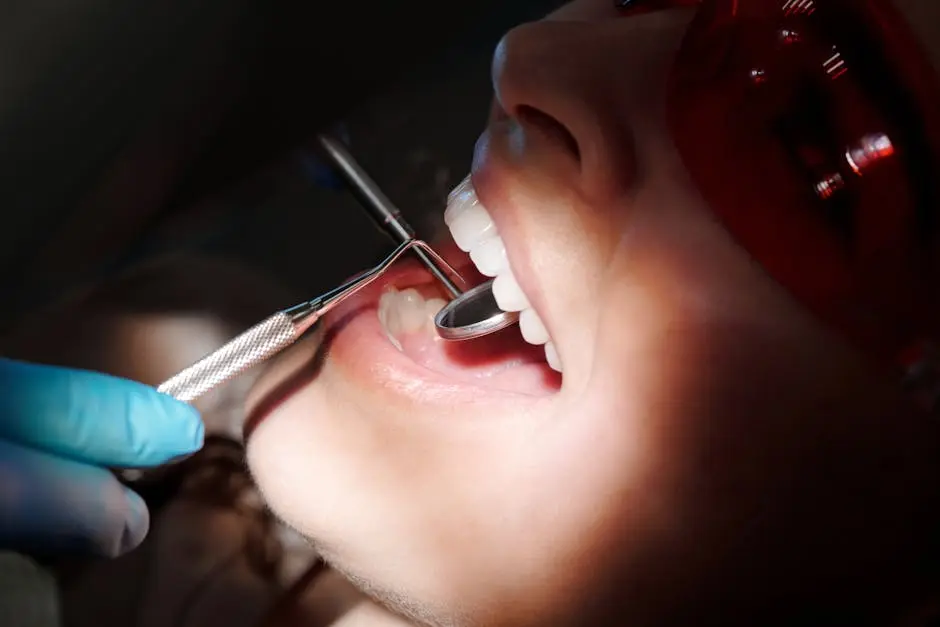Dental emergencies can strike at any moment, often causing not just physical discomfort but also daunting questions about how to address them. Understanding these emergencies and knowing how an emergency dentist can help is crucial for safeguarding your smile. In this guide, we’ll explore common dental emergencies, what causes them, and how to respond effectively to ensure your oral health is in good hands.
1. Understanding Dental Emergencies
Dental emergencies can be overwhelming, often occurring at the most inconvenient times. Understanding what constitutes a dental emergency is the first step to managing your oral health effectively. These situations go beyond regular toothaches; they involve issues that require immediate care to prevent severe damage or complications. Common dental emergencies include knocked-out teeth, severe pain, infections, and trauma to the mouth or gums.
Recognizing the signs of a dental emergency can make a significant difference in your treatment outcome. For instance, swelling, persistent pain, or bleeding that doesn’t stop should prompt you to seek help without delay. The sooner you consult an emergency dentist, the better your chances of preserving your tooth or mitigating further complications.
2. Identifying a Toothache vs. Emergency Pain
Not all toothaches indicate an emergency, but distinguishing between a simple ache and emergency pain is essential. A mild toothache may result from cavities or gum irritation. However, if the pain is excruciating, accompanied by swelling or fever, it might signify a more severe underlying issue, such as an abscess. In such cases, contacting an emergency dentist is crucial, as prompt treatment can prevent more serious health issues.
Additionally, acute pain that develops suddenly and intensifies may suggest nerve damage or a significant dental infection. Understanding your body’s signals can help you differentiate between a standard dental issue and one that qualifies as an emergency. Don’t hesitate to seek professional help if you’re unsure about your symptoms. An emergency dentist can provide guidance tailored to your situation, ensuring you receive the care you need.
3. Handling a Knocked-Out Tooth
One of the most alarming dental emergencies is a knocked-out tooth. The immediate response can significantly impact the likelihood of saving the tooth. If you find yourself in this situation, the first step is to remain calm and locate the tooth. Holding it by the crown, rinse it gently with water if it’s dirty, but avoid touching the root. Placing the tooth back into its socket within 30 minutes can increase the chances of successful reattachment.
If reinserting the tooth isn’t possible, store it in a container with milk or saline, as this environment can help preserve the tooth’s vitality until you reach the dentist. Seeking help from an emergency dentist as quickly as possible is vital. Prompt action increases the odds of saving your tooth and minimizes discomfort.
4. Dealing with Chipped or Fractured Teeth
Chipped or fractured teeth are another common dental emergency that can occur during accidents or sports activities. These injuries can range from minor chips to significant breaks that expose nerves. Understanding how to handle these situations is critical for both immediate relief and long-term care. Rinsing your mouth gently and applying a cold compress to reduce swelling are effective first steps.
The next crucial step is to contact an emergency dentist who can evaluate the damage. Depending on the severity of the fracture, treatment options may include bonding for minor chips or crowns for more extensive damage. In severe cases, root canal therapy might be necessary. Remember, never ignore tooth damage, even if it’s minor, as it can lead to further issues if not addressed promptly.
5. Coping with Lost Fillings or Crowns
Losing a filling or crown can be unsettling, but knowing how to cope with this situation can help alleviate anxiety. Firstly, try to keep the area clean by rinsing your mouth with warm saltwater. If there’s a sharp edge or if the tooth is sensitive, covering it with dental wax or sugarless gum can provide temporary relief until you see an emergency dentist. It’s essential not to delay treatment, as the exposed tooth can lead to further cavities or infections.
While you wait for your appointment, avoid chewing on that side and manage any discomfort with over-the-counter pain relievers. An emergency dentist will typically assess whether the filling or crown can be replaced or if a more extensive procedure is required, safeguarding your dental health for the future.
6. Recognizing Signs of Infection
Infections in the mouth can escalate quickly and pose serious health risks. Recognizing the signs early is crucial for effective treatment. Symptoms to watch for include swelling, persistent pain around a tooth, bad breath, fever, and pus discharge. If you experience any combination of these symptoms, it’s important to consult an emergency dentist immediately. Ignoring these signs can lead to more severe complications, including tooth loss and systemic infections.
In most cases, an emergency dentist will prescribe antibiotics to tackle the infection before performing any additional procedures. Addressing oral infections promptly ensures the prompt relief of discomfort and minimizes the risk of complications.
7. Managing a Dental Abscess
A dental abscess is another serious emergency that arises from bacterial infections, leading to a pocket of pus forming around the tooth or gum. This situation demands immediate care. Symptoms often include severe toothache, swelling in the gums, and a foul taste in the mouth from drainage. If you suspect you have an abscess, seeking the expertise of an emergency dentist is crucial.
Treatment options may include drainage of the abscess, antibiotics, and possibly a root canal if the tooth is severely compromised. Managing a dental abscess is not something to take lightly, as failure to address it can lead to more significant health issues. Remember, prioritizing your oral health by acting quickly can lead to better outcomes.
8. Understanding Wisdom Tooth Emergencies
Wisdom teeth can often create complications as they emerge, frequently leading to pain or infection. Understanding the signs of a wisdom tooth emergency is key for timely intervention. Common indications include intense discomfort at the back of your mouth, swelling, and difficulty opening your jaw. If you experience these symptoms, it’s wise to reach out to an emergency dentist.
In many cases, the dentist may recommend extraction if the wisdom tooth is impacted or causing other teeth to shift. Delaying treatment can lead to complications; hence, addressing wisdom tooth issues early is vital to maintain your overall dental health.
9. Treatment for Gum Injuries
Gum injuries, whether caused by accidents or dental procedures, can be painful and alarming. If you sustain a gum injury, rinsing your mouth with warm saline can help to keep the area clean and promote healing. Applying a cold compress on the outside of your cheek can also reduce swelling.
However, it’s essential to consult an emergency dentist to assess the extent of the injury. Depending on the severity, they may recommend stitches or other treatments to promote healing and prevent infection. Taking gum injuries seriously is vital to avoiding long-term complications.
10. Addressing Dental Trauma in Children
Dental trauma is particularly common in children, especially during play or sporting activities. This can involve knocked-out teeth, chips, or other injuries, and knowing how to address the situation is critical. If a child experiences a dental injury, remain calm to help soothe their anxiety. Assess the injury and act quickly, whether it’s rinsing their mouth or applying a cold compress.
It’s crucial to contact an emergency dentist promptly. Children’s dental injuries may require specialized treatment to ensure their adult teeth come in correctly. By taking swift action, you not only protect their immediate dental health but also set the foundation for their future smiles.
11. Reactions to Dental Anesthesia
While dental anesthesia is typically safe, some individuals may experience adverse reactions. Symptoms may include dizziness, swelling, or an allergic response. If you or someone you know starts to experience unexpected symptoms during or after a dental procedure, it’s essential to alert the dentist immediately. Emergency dentists are trained to recognize and treat these reactions effectively.
Monitoring your response to anesthesia may help prevent more severe complications. Always communicate any concerns with your dentist before a procedure so they can take appropriate precautions. Your safety is a top priority, even in routine dental work.
12. When to Seek an Emergency Dentist
Knowing when to seek the help of an emergency dentist can be a game-changer in your oral health journey. It’s critical to act when you experience severe pain, bleeding, or significant swelling. Accidents that result in tooth loss or trauma to the jaw also warrant immediate attention. Have a plan in place for emergencies, as this can help you respond quickly and minimize potential damage.
Being proactive and knowledgeable about when to seek an emergency dentist enables you to address potential threats to your oral health swiftly. Don’t hesitate to reach out for help; timely intervention can save your teeth and alleviate discomfort.
13. The Role of an Emergency Dentist
Emergency dentists play a vital role in providing immediate care and addressing urgent dental issues. Their expertise lies in diagnosing and treating dental emergencies, ensuring patients receive the necessary care promptly. Whether you have a toothache in the middle of the night or experience trauma during the day, knowing an emergency dentist is available can offer peace of mind.
Their services typically include managing pain, treating infections, repairing damaged teeth, and performing extractions when necessary. An emergency dentist can be your lifeline, ensuring that your dental health does not take a backseat amid unexpected emergencies.
14. Preventive Measures for Dental Emergencies
While dental emergencies can happen to anyone, taking preventive measures can notably reduce their occurrence. Regular dental check-ups, proper oral hygiene practices, and wearing mouthguards during sports can significantly minimize risks. Educating yourself about potential risks and maintaining consistent preventive care helps ensure your smile remains healthy.
Furthermore, being aware of your diet’s impact on your dental health is crucial. Limiting sugary snacks and drinks can deter cavities and oral infections. Remember, following a proactive approach to your dental care can save you from potential emergencies later.
15. Aftercare Following a Dental Emergency
After experiencing a dental emergency, proper aftercare is essential to ensure recovery and minimize complications. Your dentist will likely provide specific care instructions depending on your situation. Following these recommendations can help you heal effectively and prevent further issues.
In general, maintaining good oral hygiene is crucial during recovery. Rinsing with salt water, avoiding hard foods, and managing pain with over-the-counter medications can support your healing process. Regular follow-up appointments may also be necessary to monitor your progress and ensure everything is on track.















